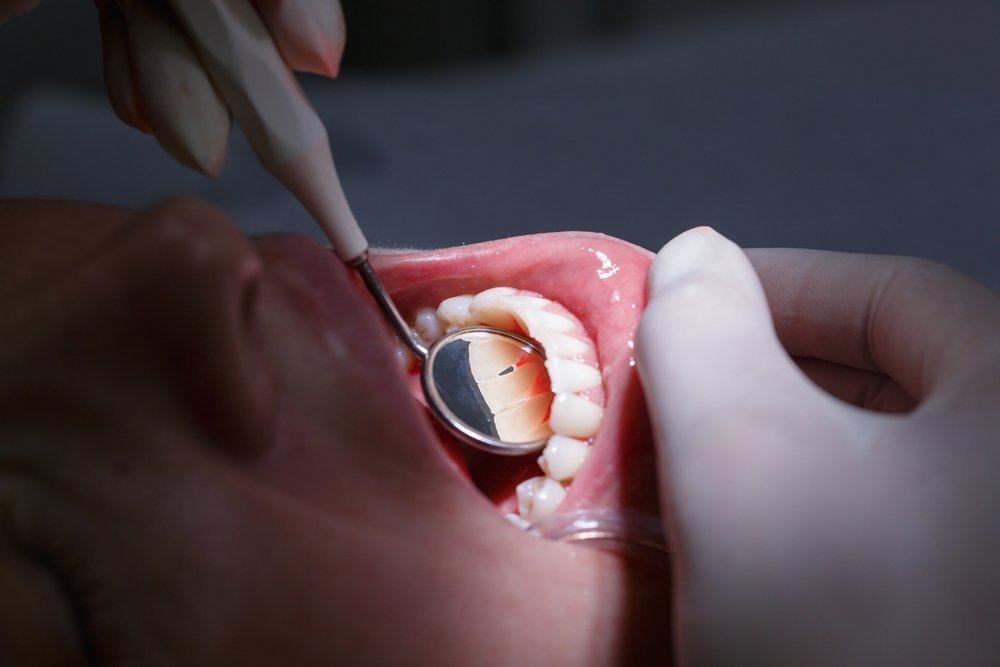Contents:
- Medical Video: What causes bad breath (and how to get rid of it)
- Health conditions that cause bad breath
- 1. Gum disease
- 2. Cancer
- 3. Allergy
- 4. Diabetes
- 5. Liver disease
- 6. Kidney failure
- 7. Candida albicans
- 8. Chronic acid reflux
- 9. Helicobacter pylori
- 10. Sjögren's Syndrome
Medical Video: What causes bad breath (and how to get rid of it)
Poor dental health is the main cause of most cases of halitosis (bad breath is bad), but bad breath can also indicate other medical conditions. According to a study in the journal Gut in April 2015, the latest breath testing technology can detect stomach cancer in the initial stages.
However, stomach cancer is not the only one that can cause odor to your breath.
Health conditions that cause bad breath
1. Gum disease
Gum disease can cause bad breath. A study in 2012 found a direct relationship between periodontitis and gingivitis (inflammation of the gums) with bad breath. This halitosis is the result of bacteria that live in the patient's mouth.
2. Cancer
Don't panic and immediately think that your bad breath is a sign of cancer. Cancer can make someone's breath have many complications. Smell on breathing can identify cancer at an early stage. Cleveland Clinic has tested a device that can detect lung cancer from 80% of patients, based only on breath tests.
Chemotherapy and radiation therapy can cause dry mouth by affecting the production of saliva. Without sufficient flow of saliva, unwanted bacteria can increase the release of sulfur gas which can make breath odor worse.
3. Allergy
If you suffer from allergies, in addition to itchy throat, nasal congestion, and watery eyes, you will also experience bad breath. Mucus and snot can provide land for bad germs that cause bad breath. Often when we have allergies, you will experience dry mouth. This also causes odor in the mouth. Although there is no good solution for this problem, removing snot and keeping your mouth clean and fresh can help you escape allergies and bad breath.
4. Diabetes
Diabetics experience insufficient insulin production. This can direct the body to burn fat, and this condition is called ketoacidosis. This condition can lead to an increase in ketones (a product of fat metabolism) and the body will excrete it through urine and lungs. This can cause bad breath like acetone (dimethyl ketone).
5. Liver disease
Patients with liver disease experience breath odor which scientists call as fetor hepaticus. It has been found that a musty odor in the mouth can indicate a disturbance in the liver, often even before other symptoms.
6. Kidney failure
It has been found that bad breath can recognize the possibility of kidney failure. Researchers speculate that this might occur because of metabolic changes that can cause dry mouth, lack of saliva, and decreased taste buds. All of these conditions can contribute to halitosis because saliva fails to clean the mouth.
7. Candida albicans
Another case that can cause bad breath is Candida albicans. This fungus has proven to be a common problem for those who have piercings on the tongue. This problem has also been identified in users of dentures or braces users.
8. Chronic acid reflux
Having chronic gastric acid reflux is bad enough. For those who suffer from the disease, keeping their mouth clean is very important. A review of several studies of people with GERD (Gastroesophogeal Reflux Disease) found that halitosis often interferes with GERD patients. Rising acid and other ingredients that have been partially digested into the esophagus and oral cavity can cause bad breath problems and make it difficult to maintain oral hygiene.
9. Helicobacter pylori
H.pylori infection, usually associated with ulcers and other digestive tract problems, has the possibility of the appearance of halitosis in patients. A study found that people with digestive disorders have halitosis and H.pylori infection. Fortunately, when sufferers can overcome the infection, halitosis will disappear.
10. Sjögren's Syndrome
Sometimes, dry mouth is caused by an autoimmune disorder (the body attacks itself). One medical condition known as Sjögren's syndrome takes place when the body attacks and inhibits the exocrine glands (such as salivary glands) from carrying out its functions. Problems like this cause dry mouth and other related problems.
Did you know that maintaining good oral health is very important to reduce bad breath? So, make sure you schedule a visit to the dentist regularly for cleaning and dental examinations. Brush your teeth twice a day with toothpaste containing fluoride to remove leftovers and plaques, and don't forget to brush your tongue.












